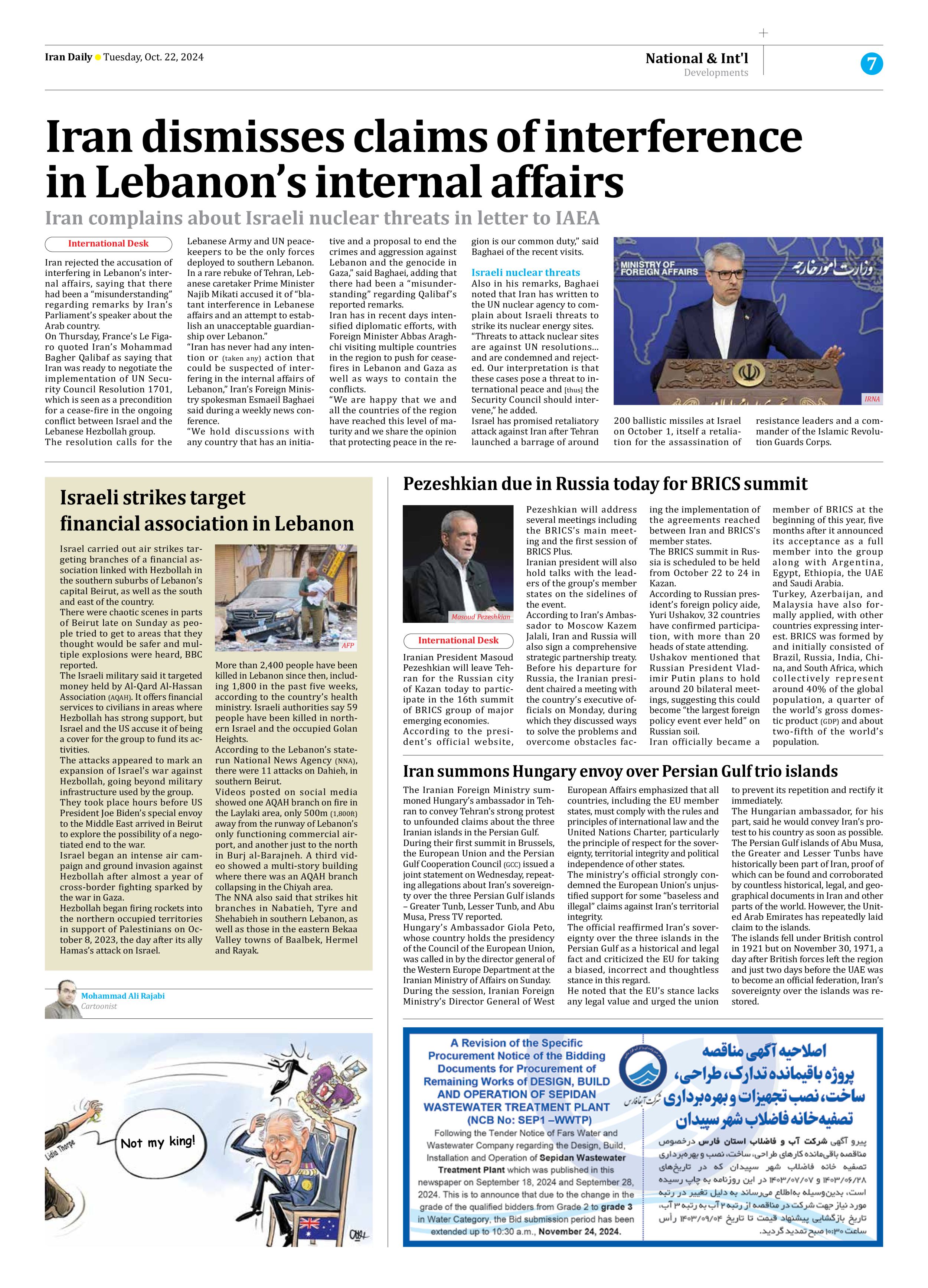
Iran dismisses claims of interference in Lebanon’s internal affairs
Iran complains about Israeli nuclear threats in letter to IAEA
Iran rejected the accusation of interfering in Lebanon’s internal affairs, saying that there had been a “misunderstanding” regarding remarks by Iran’s Parliament’s speaker about the Arab country.
On Thursday, France’s Le Figaro quoted Iran’s Mohammad Bagher Qalibaf as saying that Iran was ready to negotiate the implementation of UN Security Council Resolution 1701, which is seen as a precondition for a cease-fire in the ongoing conflict between Israel and the Lebanese Hezbollah group.
The resolution calls for the Lebanese Army and UN peacekeepers to be the only forces deployed to southern Lebanon.
In a rare rebuke of Tehran, Lebanese caretaker Prime Minister Najib Mikati accused it of “blatant interference in Lebanese affairs and an attempt to establish an unacceptable guardianship over Lebanon.”
“Iran has never had any intention or (taken any) action that could be suspected of interfering in the internal affairs of Lebanon,” Iran’s Foreign Ministry spokesman Esmaeil Baghaei said during a weekly news conference.
“We hold discussions with any country that has an initiative and a proposal to end the crimes and aggression against Lebanon and the genocide in Gaza,” said Baghaei, adding that there had been a “misunderstanding” regarding Qalibaf’s reported remarks.
Iran has in recent days intensified diplomatic efforts, with Foreign Minister Abbas Araghchi visiting multiple countries in the region to push for cease-fires in Lebanon and Gaza as well as ways to contain the conflicts.
“We are happy that we and all the countries of the region have reached this level of maturity and we share the opinion that protecting peace in the region is our common duty,” said Baghaei of the recent visits.
Israeli nuclear threats
Also in his remarks, Baghaei noted that Iran has written to the UN nuclear agency to complain about Israeli threats to strike its nuclear energy sites.
“Threats to attack nuclear sites are against UN resolutions... and are condemned and rejected. Our interpretation is that these cases pose a threat to international peace and [thus] the Security Council should intervene,” he added.
Israel has promised retaliatory attack against Iran after Tehran launched a barrage of around 200 ballistic missiles at Israel on October 1, itself a retaliation for the assassination of resistance leaders and a commander of the Islamic Revolution Guards Corps.







